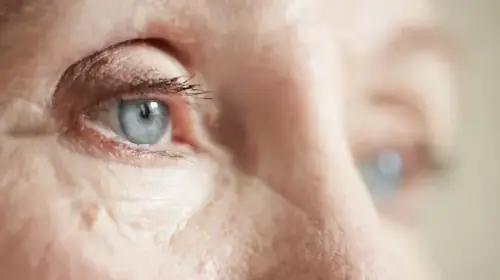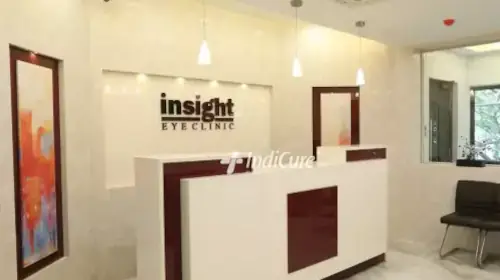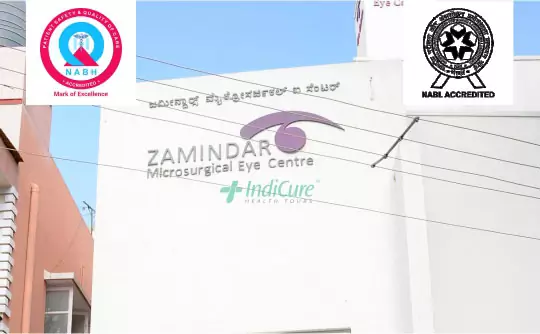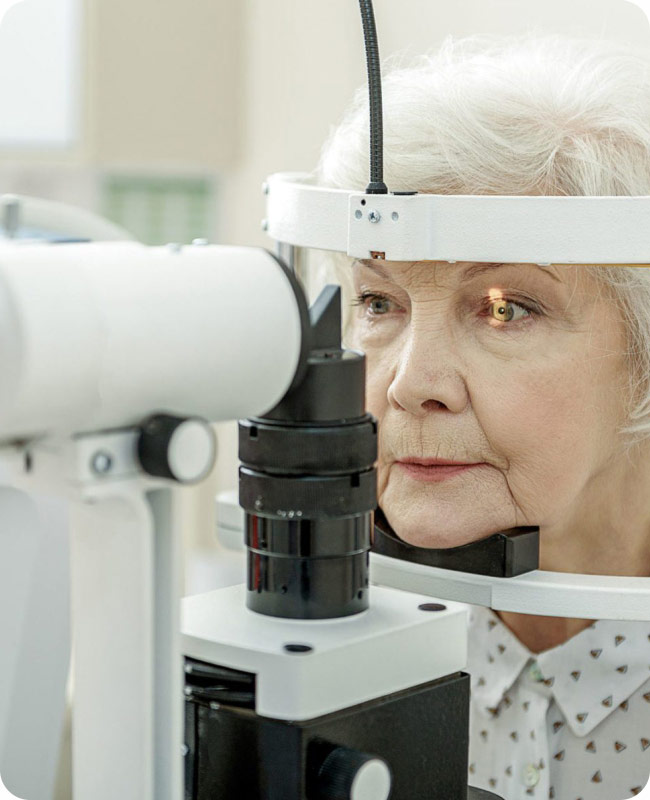

Glaucoma Treatment Cost in India starts from US $400 and varies depending on the type of treatment, your medical history and condition, doctor, hospital and the city where you choose to get the treatment done.
While some patients may do well with medication alone, others may need surgery to treat the condition. Our expert doctors will advise the right treatment for you depending on your medical history and the severity of your condition, which in turn will affect the glaucoma treatment cost in India.
An important expense when it comes to your glaucoma treatment is going to be your ophthalmologist's fees. IndiCure recommends highly experienced, skilled, board-certified surgeons who are capable of delivering successful treatments. Although the charges may vary depending on the experience of the surgeon, you can be assured that you are in safe and skilled hands when you choose eye treatment in India with IndiCure.
Having your glaucoma surgery in an accredited surgical facility by skilled and qualified medical staff is a critical factor. Moreover, the geographical location of this facility in India also affects the quote. But, IndiCure provides you with a projected estimate that will be all inclusive and affordable.
The treatment-related expenses include the pre- and post-treatment expenses. The pre-treatment expenses are associated with the age and medical condition of the patient and thus the number and type of investigations required. Post-treatment expenses may include prescription medications and follow-up consultations.
We at IndiCure, understand that you travel with a budget in mind and do not like to be greeted by surprises after arrival in India. We thus club all these expenses and give you the package cost that is inclusive and affordable at the same time.
Your case manager shall give you an estimated cost of your surgery after discussing your medical reports with the surgeon. The final cost, however, shall be confirmed after your consultation with the surgeon.
In fact, we have Special Negotiated Rates with the Hospitals and you can avail Discounted Rates when you choose to Travel with IndiCure.


We Help you Choose the Right Treatment, Surgeon & Hospital

We Arrange Video/Telephonic Consultation with the Surgeon

We Assist you with Visa & Accommodation

We Receive you at the Airport and Drop you at Hotel/Hospital

We Assist you the at Hospital & Provide Post Operative Support

Mumbai
Insight Eye Clinic is a cutting-edge and one of Mumbai's leading eye care centres, delivering high-quality eye care. The facility is well equipped with eye care experts, specially trained staff, and the latest in eye care technology to ensure that the patients are treated with the utmost care and warmth.

Bangalore
Zamindar's Microsurgical Eye Centre (ZMEC), which was founded in 1997, has been offering high-quality eye care to patients in and around Bangalore for the past 25 years. Their patients vouch for their services, and they are highly regarded for offering best-in-class eye treatment.
Glaucoma is a disorder in which the optic nerve of your eye is damaged. Over time, it worsens. It's frequently linked to an increase in intraocular pressure. Glaucoma is a disease that runs in families. It is frequently not discovered until later in life.
Intraocular pressure, or the pressure inside your eye, can harm your optic nerve, which sends images to your brain. Glaucoma can cause permanent vision loss or perhaps total blindness within a few years if the damage increases.
Aqueous humour, the fluid inside your eye, normally drains out of your eye through a mesh-like channel. The liquid builds up if this route becomes clogged or if the eye produces too much fluid. Experts aren't always sure what causes the blockage. It can, however, be inherited, which means that it is handed down from parents to children.
The majority of persons with open-angle glaucoma have no symptoms. If symptoms do appear, it is usually late in the course of the disease. Glaucoma is known as the "sneak thief of eyesight" because of this. The most common symptom is a loss of side vision, often known as peripheral vision.
Angle-closure glaucoma symptoms frequently appear sooner and are more noticeable. It is possible for damage to occur fast. If you have any of these symptoms, seek medical attention as soon as possible.
Symptoms of angle-closure glaucoma usually come on faster and are more obvious. Damage can happen quickly. If you have any of these symptoms, get medical care right away:
There are two main kinds:
The most prevalent type of glaucoma is open-angle glaucoma. It's also known as wide-angle glaucoma by your doctor. The trabecular meshwork (the drain structure in your eye) appears to be in good working order, yet fluid does not flow out as it should.
is a kind of glaucoma that is more common in Asia. It's also known as acute or chronic angle closure glaucoma or narrow-angle glaucoma. Because the drain area between your iris and cornea gets too tiny, your eye does not drain as well as it should. This can result in a sudden increase in ocular pressure. Farsightedness and cataracts, a clouding of the lens inside your eye, are also linked to it.
Less common types of glaucoma include:
occurs when an underlying ailment, such as cataracts or diabetes, produces an increase in ocular pressure.
occurs when you have blind patches in your vision or your optic nerve is injured despite having a normal eye pressure. According to some specialists, it's a type of open-angle glaucoma.
Pigment from your iris, the coloured component of your eye, gets into the fluid inside your eye and clogs the drainage canals, causing pigmentary glaucoma.
To relieve the pressure in your eye, your doctor may use prescription eye drops, oral medicines, laser surgery, or microsurgery.
Procedures include:
This opens the drainage area.
This makes a tiny hole in your iris to let fluid flow more freely.
This treats areas of the middle layer of your eye to lower fluid production.
A trabeculectomy is a treatment in which your doctor builds a new channel to drain fluid and relieve eye pressure. It's possible that this type of surgery will need to be repeated. A tube may be implanted by your doctor to aid in the drainage of fluid. This procedure can result in eyesight loss that is temporary or permanent, as well as bleeding or infection.
Glaucoma treatment should be sought immediately for those who have been diagnosed with the disease.
We at IndiCure completely understand your concerns and it is always our endeavor to provide the best outcome for every patient. Following is the list of questions you must ask before you embark on your journey for glaucoma treatment in India.
Prepare to answer questions about your:

Your eye will be numbed, cleaned, and a lid speculum will be placed over it to keep it open. Then you'll be wrapped in a drape that just exposes your eye. You'll be aware that the surgeon is working, but you shouldn't be able to feel anything.
A bleb at the top of your eye will be opened by the surgeon. The surgery will be performed beneath your eyelid, so it will not be visible thereafter.
After the new drainage site has been formed, your surgeon will apply sutures around the site to keep the "flap" over the bleb open during the healing process, as the site must not reseal.
After the procedure, the results are pleasing. The success rate of long-term trabeculectomy has been found to be high. It's expected that 90 percent of the people who took part were successful, with two-thirds of them no longer needing medication to regulate their symptoms.
Discomfort and impaired vision in the afflicted eye are common early adverse effects following surgery. The blurring could last two weeks, but it could take up to 12 weeks for your eye to feel and see normally again. Your surgical site and stitches will be sore, but once the stitches are removed, the tenderness should subside.
You'll have to stick to a tight routine of applying prescribed antibiotic and steroid eye drops throughout the day for two to three months after surgery. Following surgery, your doctor will advise you to cease taking your usual glaucoma treatments in the damaged eye.
Glaucoma can't be reversed once it's started. Treatment and regular examinations, on the other hand, can help decrease or prevent vision loss, especially if the disease is caught early. Reduced eye pressure is used to treat glaucoma (intraocular pressure).
Glaucoma surgery is quite safe and effective if done by a qualified ophthalmologist in a proper hospital set up.
It takes 1 to 2 hours and is performed in a hospital. The surgeon inserts a tiny tube, known as a shunt, into the white area of your eye during this procedure. The tube aids in the drainage of excess fluid from your eye, decreasing your eye pressure.
The delicate, microscopic incisional trabeculectomy (with or without ExPRESS microshunt implantation), tube shunt implantation (a shunt is a glaucoma drainage device), and cyclophotocoagulation are among the glaucoma procedures. MIGS, or minimally invasive glaucoma surgery, is a relatively new treatment.
The time it takes to recover after glaucoma surgery varies based on the procedure.
Less intrusive techniques, such as minimally invasive glaucoma surgery (MIGS), do not drastically alter the structure or shape of the eye, and thus the visual recovery can be swift. Traditional operations might produce significant drops in pressure or blurriness because of astigmatism caused by suturing. In the days to weeks following surgery, most people see a recovery in their eyesight.
You should be able to return to mild job duties in one or two weeks if your blood pressure returns to normal.
Within the first several days after surgery, most patients can resume normal activities such as reading, watching TV, or using phones, laptops, or other electronic devices. Showering and bathing can be resumed as well. To avoid bumping or touching the eye, eye protection (a shield or glasses) is worn.
Avoid the following activities during the first few weeks after surgery when the eye pressure is low:
You should also avoid the following actions, which can lead to bacterial infection:
After your operation, your eye care team will be able to give you more specific recovery timelines and instructions.
Traveling abroad for medical reasons can be challenging if you are alone, but with IndiCure by your side, it doesn't have to be. With over fifteen years of experience and an exclusively curated network of India's best surgeons and top hospitals, we make your medical tour to India easier and safer. We will guide you at every step, handling all the end-to-end arrangements for your surgery, travel, and stay.
Ramandeep Dhaliwal
a month ago
I had great experience having rhinoplasty through Indicure. Dr. Ruchika from Indicure has helped me in finding best plastic surgeon, answering all my questions...
Ramandeep Dhaliwal's Full Review
Joshua Archer
3 months ago
My name is Joshua Archer I'm from New Zealand, bay of plenty, kawerau I opted for the bypass surgery in January 2023 but planned it in advance for 28 September found IndiCure...
Joshua Archer's Full Review
Kera Ren
8 months ago
Absolutely loved my experience with IndiCure - from first inquiring to meeting the surgeon pre op to my follow up post op. The surgeon was extremely approachable...
Kera Ren's Full Review
Andreana Paul
5 months ago
Had a wonderful experience. Visited India for my plastic surgery. From sending mails, airport pickup, comfortable accommodation and, to smooth hospital appointment booking...
Andreana Paul's Full Review
Brandi Luce
5 months ago
I had the privilege of using Indicure's services for a cosmetic procedure that I had wanted for a long time but had always been apprehensive about. Ruchika helped me...
Brandi Luce's Full Review
Jade M
3 years ago
Indicure Health Tours went above and beyond my expectations. They helped me with every aspect of my journey and were professional, kind and caring. I was...
Jade M's Full Review
The content on the website (www.indicure.com) is intended to be general information and is provided only as a service. All photographs on our website of before and after results are examples only, and do not constitute an implied or any other kind of certainty for the result of surgery.
Learn about IndiCure Health Tours' comprehensive editorial policy that strives to deliver trustworthy, helpful, relevant, accurate and people-first content on medical tourism in India.
It is not medical advice and should not be taken as medical advice. It should not be used to diagnose or treat a health condition and is in no way meant to be a substitute for professional medical care. You are advised to see a surgeon in person to assess what surgery may or may not accomplish for you.
It is also important to keep your expectations realistic and to understand that all surgical procedures carry risks and should never be taken lightly.